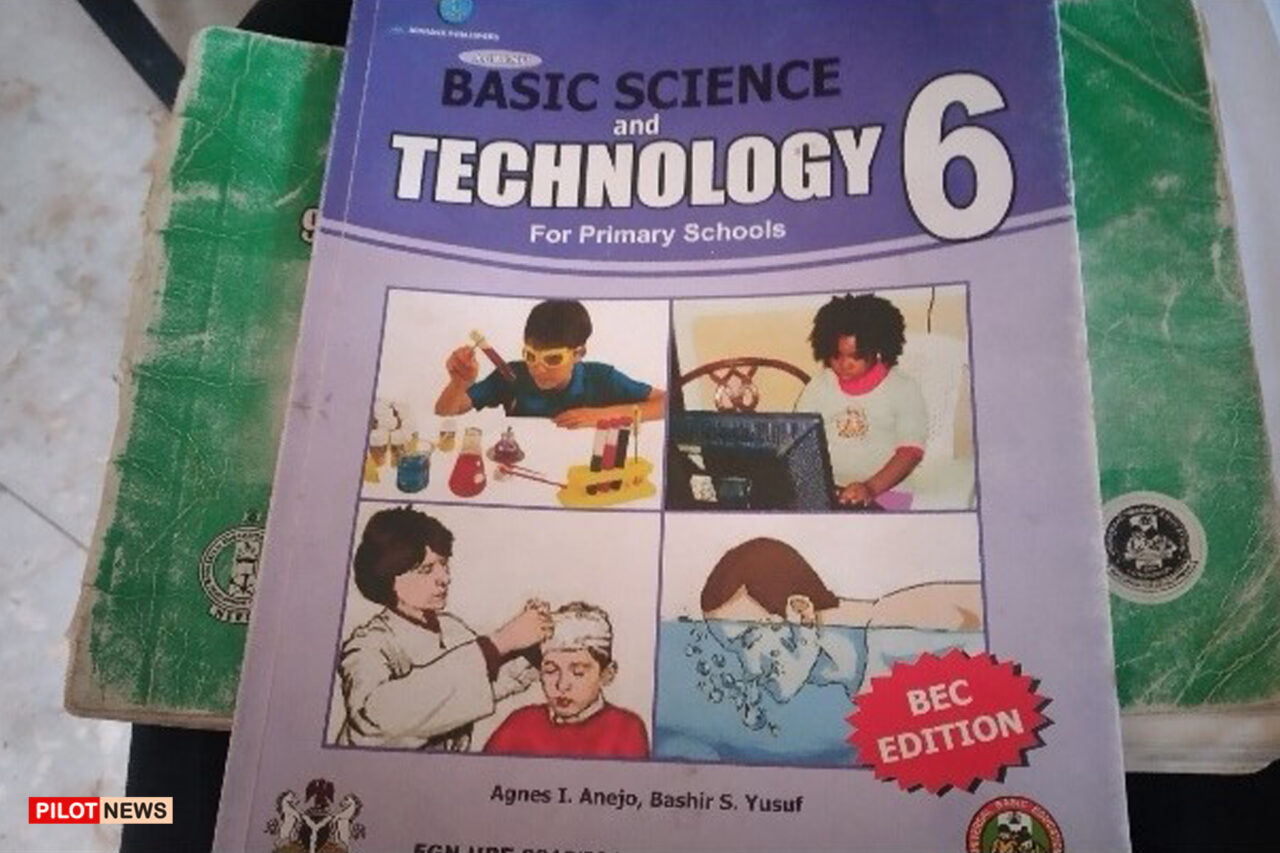By Beloved John, Staff Writer
Musa’s only teaching material is the curriculum, a flat rectangular book, given to him by the headmaster of the government primary school he was employed to teach. The curriculum is the only material he could use to carry his duty. But to give life to his basic science lessons, the primary four class teacher would need a variety of instructional materials, which currently are unavailable to him.
It’s been a year since Badamasi Musa resumed as a teacher at Presidential Lodge primary school. A small, dusty yard public school in Birnin Kebbi, Kebbi state capital. Though the school was built in a metropolitan area, its building resembled those found in distant and ungoverned settlements.
Shortly after he resumed, Musa realized he had just three types of books at his disposal. The basic science curriculum, the teacher’s guide, and an outdated textbook. But the textbook is irrelevant to him because the topics outlined in the textbook are not inconsistent with the content of the current curriculum.
Instead of providing valuable information about the topics outlined in the current curriculum, the textbook cover topics found in the old one.
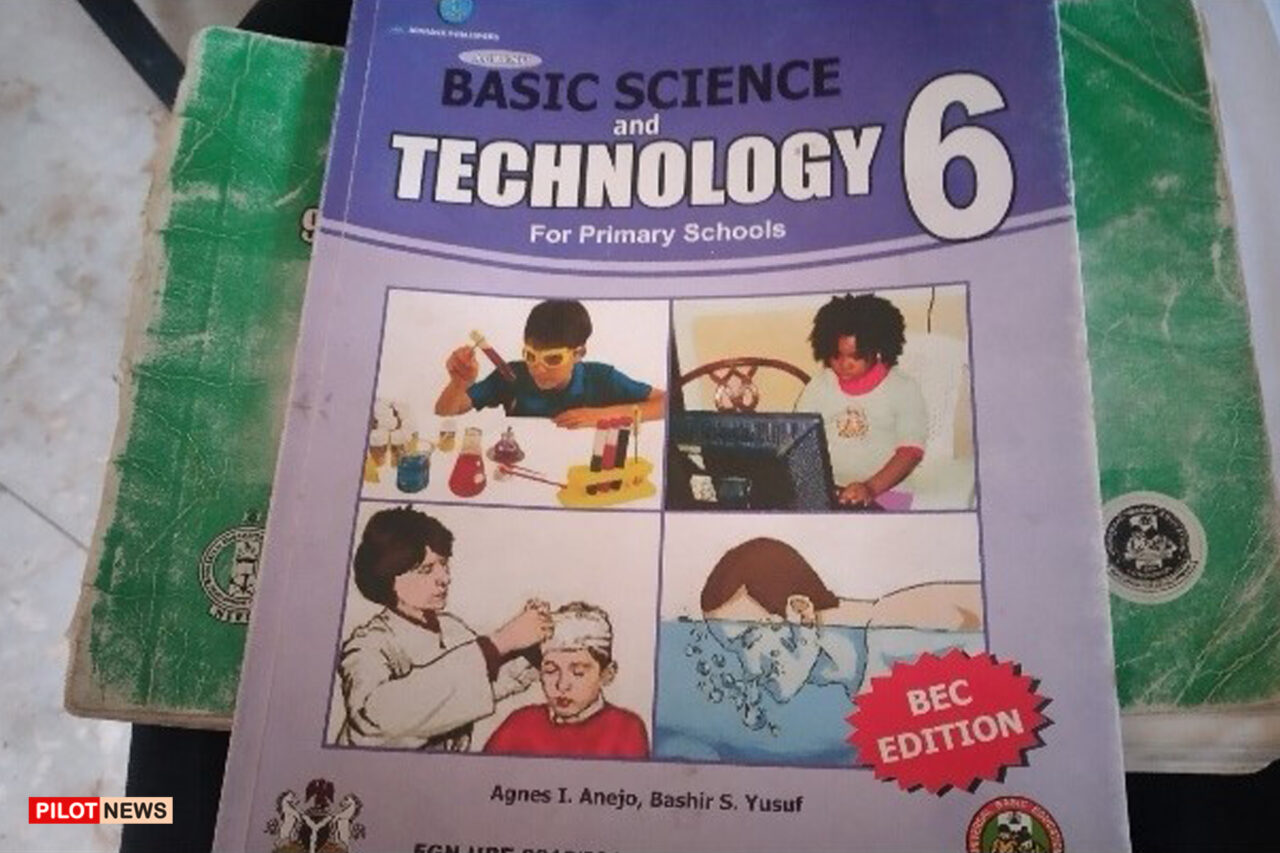
PICTURE 1&2: Basic Science and Technology curriculum and textbook supplied by the UBEC
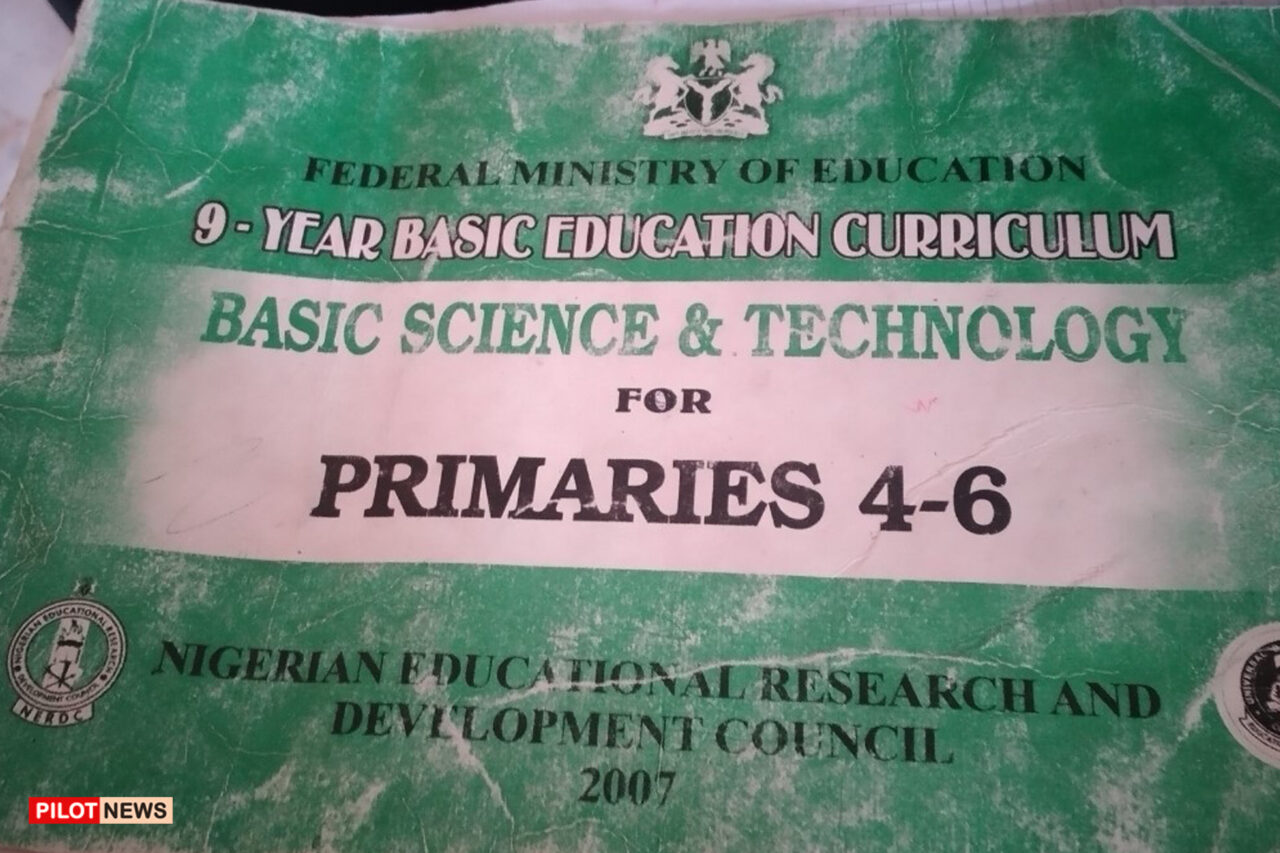
The book was lying on Musa’s table, he had sent a student to fetch it upon the request of the reporter. It smelt musty and its pages flipped hurriedly as though eager to be left alone again. The textbook was pristine and made of purples, the kind that welcomes the eyes and invites the hand to touch. But a textbook can only be considered relevant if it offers information and explanation about a subject or theme based on the standard sequence of the curriculum.
‘’The FG-UBE intervention textbook is the only option provided but it’s not useful because it doesn’t match with the curriculum. Since the curriculum is more important, I have to abandon the textbook and teach with the information outlined in the curriculum,’’ Musa told the West African Pilot News reporter.
Although for Muhammed, relying solely on the curriculum to teach was already customary, he knew the students at his workplace are been denied access to quality education.
A range of learning resources is needed to support students in the learning process, among which textbooks are most notable.
Poor quality teaching is damaging learning
Hauwa identified her favorite subject as English although she is unable to read or write and is unfamiliar with comprehension passages since she rarely reads one in school and does not have a textbook of her own. The 12-year-old is a Primary 6 student of Gwandu Emirates Model Primary School in Birnin Kebbi.
Hauwa cannot communicate in English but is regarded as one of the brightest students in her class. Her spoken English is often applauded by her teacher, Sadiq. An unsurprising gesture, considering that her proficiency is just as low as his.
The young girl is about to be shipped to post-primary after been tutored by teachers who do not know effective pedagogical practice and have little access to necessary teaching materials.
However, Sadiq, her class teacher, who can barely construct a simple sentence or tell a phrase from a clause, is certain he has mastered how to tackle the sticky situation in his school.
“Some textbooks do not match with the curriculum for several subjects but the way we are doing it, we can use just the curriculum to teach. You have to follow the curriculum before you start because it contains everything wey fits dey inside the textbook. You know, the curriculum contains pupils’ work, topic, sub-topic, and evaluation. So, if you read the curriculum well you can teach the students. You can also use google for extra information,” he said.
Pedagogical practice in government-owned elementary schools is mostly tandem to distasteful conditions of service.
The National Personnel Audit (NPA) report released by the Universal Basic Education Board (UBEC) in 2018 listed Kebbi as one of the top states with unqualified teachers in public schools.
The study indicated that pupils’ ability to learn is being threatened by the presence of substandard teachers in the state.
While the situation persists, it is worsened by the lack of auxiliary teaching materials needed to make learning effective.
The philosophy of primary education under the 9-year Basic Education Curriculum (BEC), is that every learner that undergoes the program should acquire the appropriate level of literacy, numeracy, and communicative skill needed for laying the foundation of a life-long learning experience, but the resources to foster effective implementation of the curriculum are either inadequate or lacking in most schools.
It is not enough to produce a curriculum; it is even more important to produce useful types of machinery that will ensure that its ideals are realizable through effective classroom practice.
The universal basic education program
The Universal Basic Education Commission (UBEC) had procured 1.43 million textbooks in Mathematics, English, and social studies for pupils in primary 1-3 and 7.3 million textbooks for primary 4-6 in 2019, having disclosed that the process was ongoing the previous year.
The textbooks, stamped “UBEC/FG intervention textbooks”, were distributed under the 2015/2016 intervention by the commission.
In the same year, UBEC released N142.6 billion to states for the provision of necessary facilities in public primary and junior schools in the country.
The introduction of the UBE Act in 2004 ushered in policies that guaranteed the provision of instructional materials for all government-owned elementary schools across the country.
The UBE. a 9-year education program is a reform initiative designed to control, provide and improve education at the basic level. At the wheel of the initiative is the Universal Basic Education Commission (UBEC), which coordinates the program and works to achieve the ambitious Sustainable Development Goal (SDG) 4 by ensuring the adequate provision, appropriate management, maximum utilization of educational resources.
Mathematics, Basic Science, English, Social Studies, Library resources, and Early childhood development materials are prioritized in the instructional material intervention and as of 2016, over a hundred million of these books had been distributed to public schools nationwide.
The FG had proposed a 1:1 textbook ratio for all core subjects for students in public schools and had designated `15 percent of the 2 percent of the consolidated fund for the procurement of instructional materials while 70 percent of the fund is released to states on the condition that an equal contribution is presented as matching grants.
The commission, UBEC, is statutorily required to use 15 percent of the revenue to provide textbooks and other materials for all public primary schools in the country.
However, there is still no contending the deplorable state of education in the country.
Primary education is officially free and compulsory but one in every five out-of-school children is in Nigeria and about 10.5 million children age 5-14 years are not in school. Add this to the millions of half-educated children tutored under a decaying educational system.
Pupils, teachers grapple with ineffective teaching
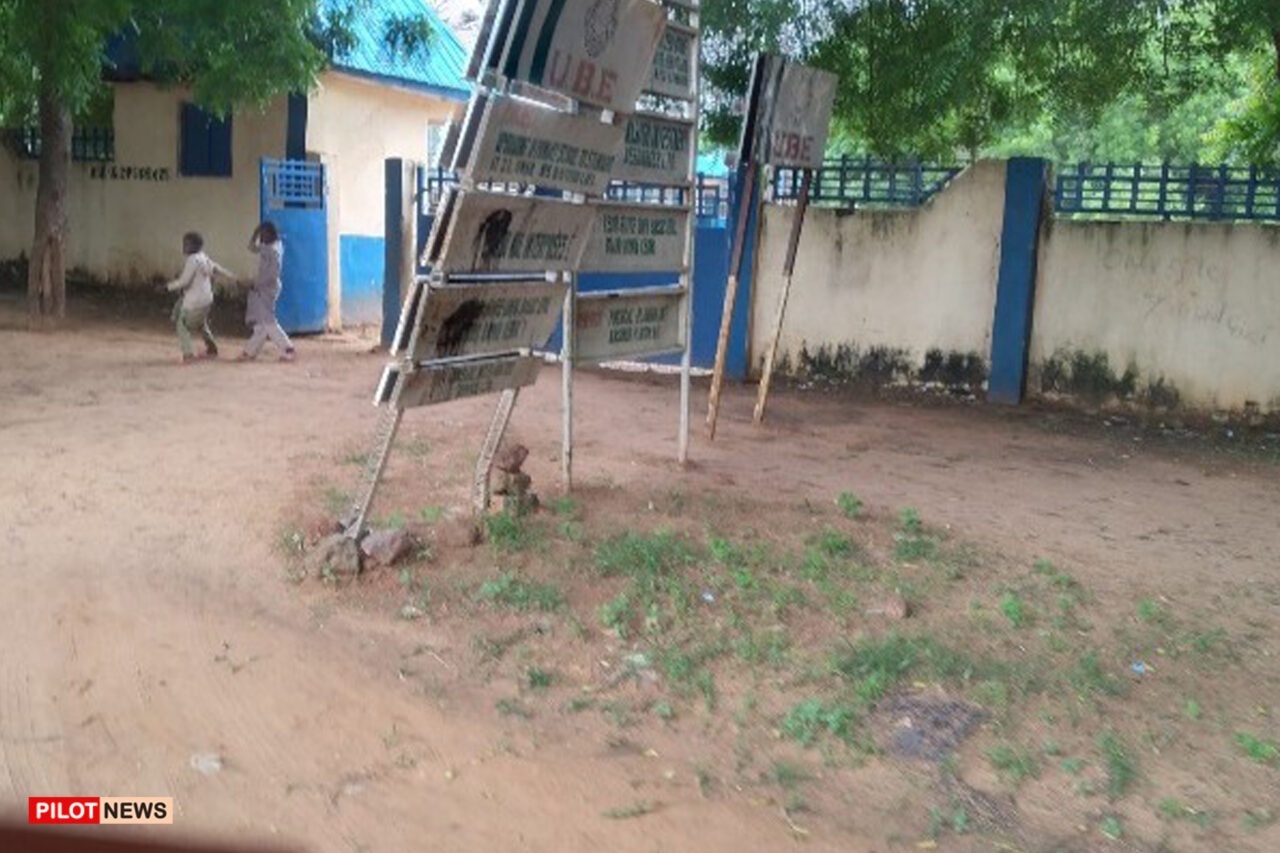
PICTURE 3: Justice Umar Model Primary School
The classes at Justice Umar Model Primary School, are also plagued by the same tragedy. Students have no choice but to take shabby lessons by substandard teachers in a harsh and inconducive environment. While the provision of quality education requires that instructional materials are not limited to textbooks, the total absence of these materials can make learning ineffective.
But the pupils at Justice Umar Model Primary School are not the only ones skating on thin ice, teachers here are also direly affected and Farouq Umar is keen on decrying the unpleasant situation. The teacher has taken to borrowing textbooks from neighbours who enrolled their children in private schools. According to him, teachers and students in private schools in the state are privy to the right materials and resources, unlike government schools where such access is a luxury.
“Only private primary school teachers have current textbooks at their disposal and this is because school owners buy directly from publishers who are quick to update materials whenever a curriculum is reviewed. Most times when I am planning for my lessons, I just borrow textbooks from private school pupils in the neigbourhood. Some of the materials in my possession were given to me by a neigbour whose son graduated from a private school two years ago,” he said with a smirk on his face.
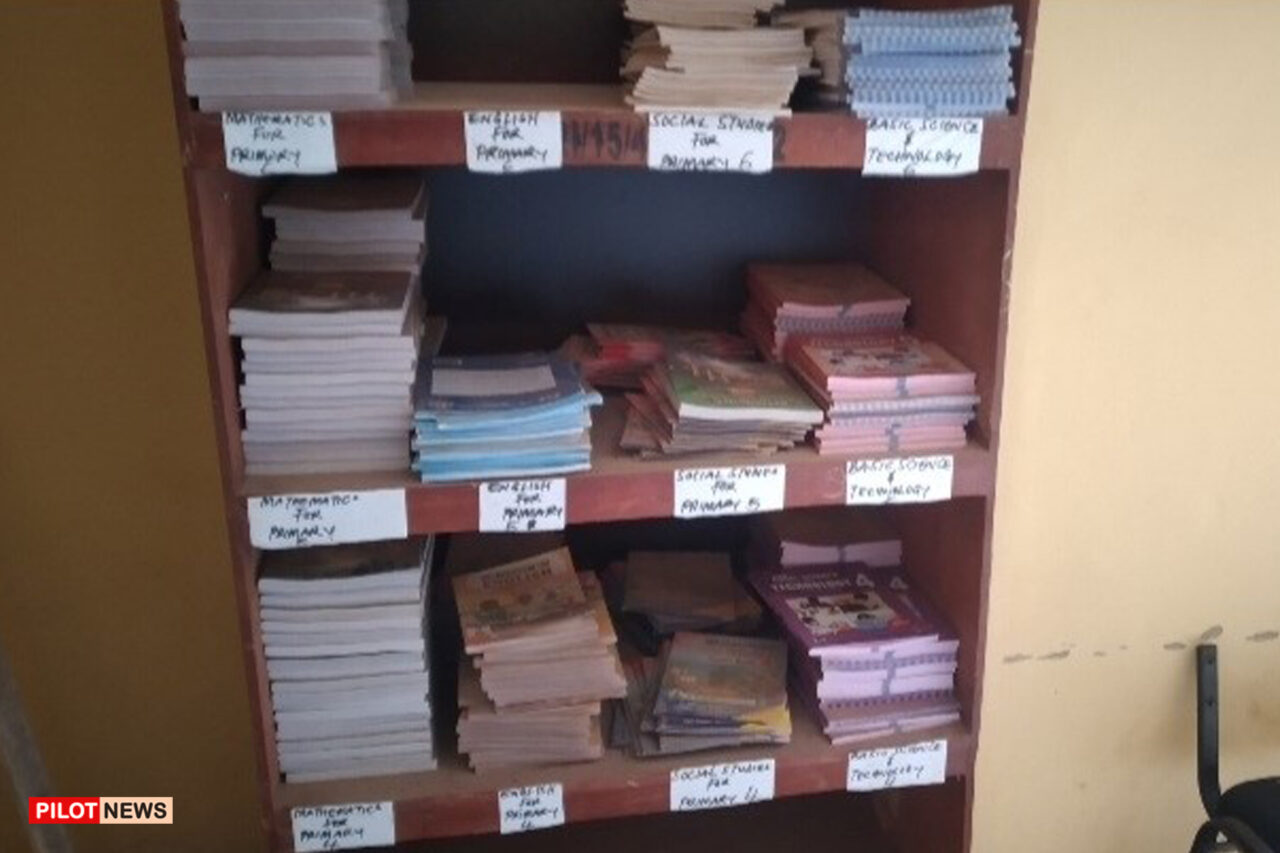
PICTURE 4: Abandoned UBEC/FG intervention textbooks
Farouq had once considered buying books with his earnings but the sum the multiple subjects teacher needed was too heavy for his meager N19000 monthly salary to bear. His wife and children would have next-to-nothing if he made such a move, so he settled with lending from neigbours.
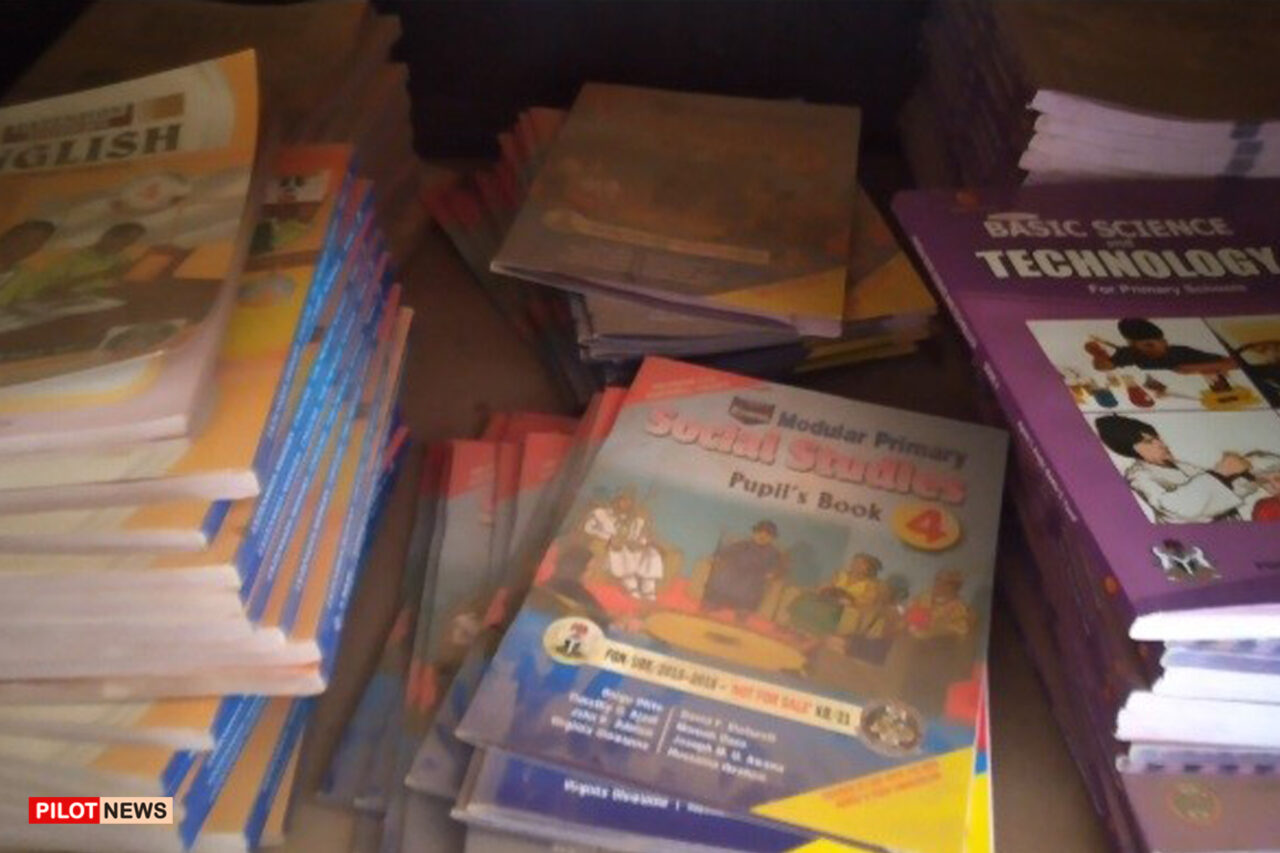
Textbooks play an important in the teaching and learning process of any subject. Access to specific choices of curriculum and textbooks matter for student achievement according to a study by Ed Reports, a non-profit that reports on school instructional materials.
“The quality of a textbook has a significant effect on student’s achievement, can determine the quality of education and is based on content format and appropriateness for the students. They are most effective when they serve the teacher’s creativity in delivering learning,” the study read.
And for Aminu, another school teacher, the supply of outdated textbooks coupled with many other inadequacies in the school system translates to the growing uninterest and indifference among teachers.
The absence of instructional materials in the school is make teaching tedious for Abubakar. He says the challenge has long depleted his motivation took effectively and is certain other teachers share his sentiment.
Request for reviewed textbooks unanswered
When Aminu, the headmaster of Justice Umar school first requested that the UBEC-FG intervention textbooks supplied to public schools in the state be revised during a meeting with the Local Government Education Authority (LGEA) in his council, he anticipated a swift response.
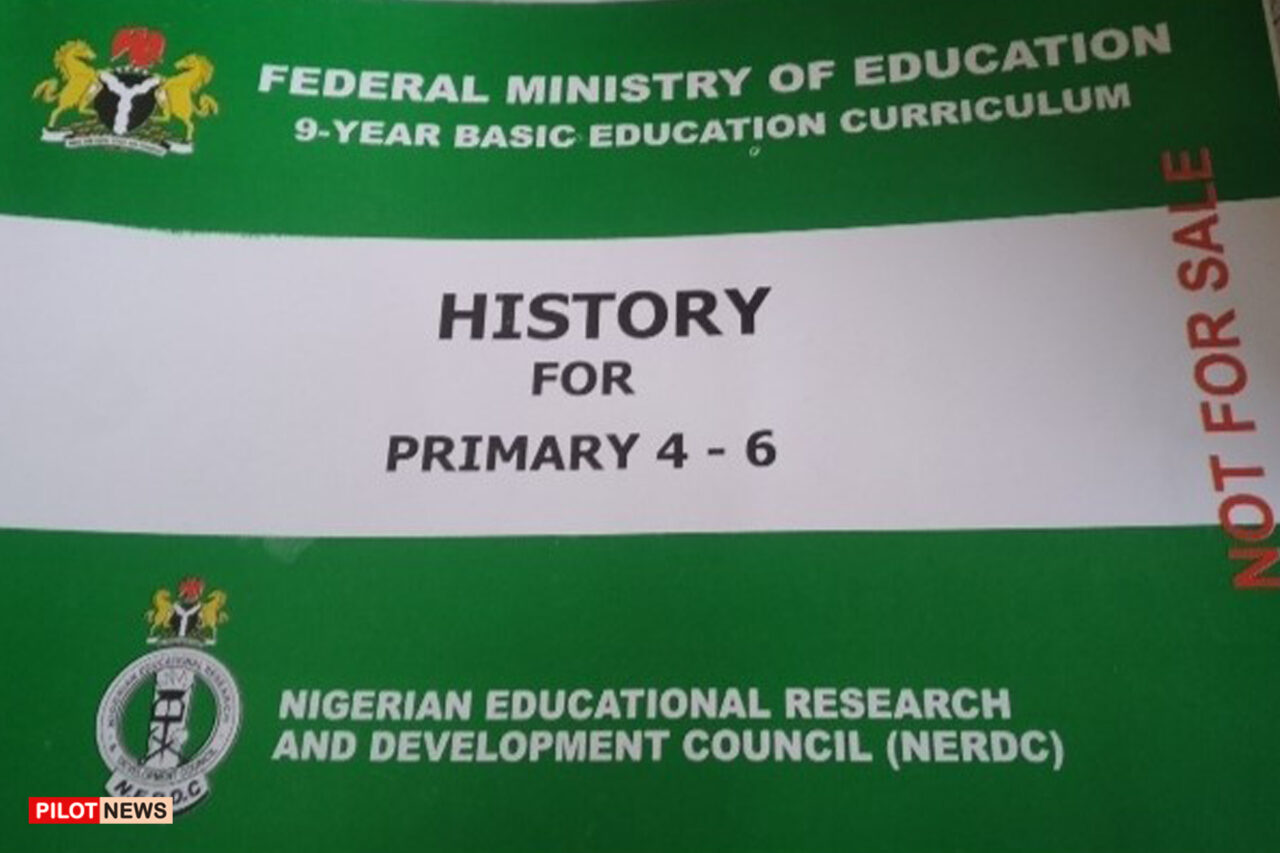
PICTURE 6: History and Islamic studies curriculum issued without teaching materials
The situation undermined the quality of teaching and learning in the state and of course, a quick response was imperative or so I thought,” he explained.
But his hopes were dashed after he made similar requests in many other meetings and nothing changed. To the headmaster, educational bodies in the state are unintentional about the quality of education in public schools. Aminu believes that is the only way to explain why after several complaints from school headmasters, most materials are either unavailable or outdated.
And to fan the flames, subjects recently introduced are without teaching materials.
While some were clustered under a curriculum, others left independent but instructional materials for these subjects are unavailable.
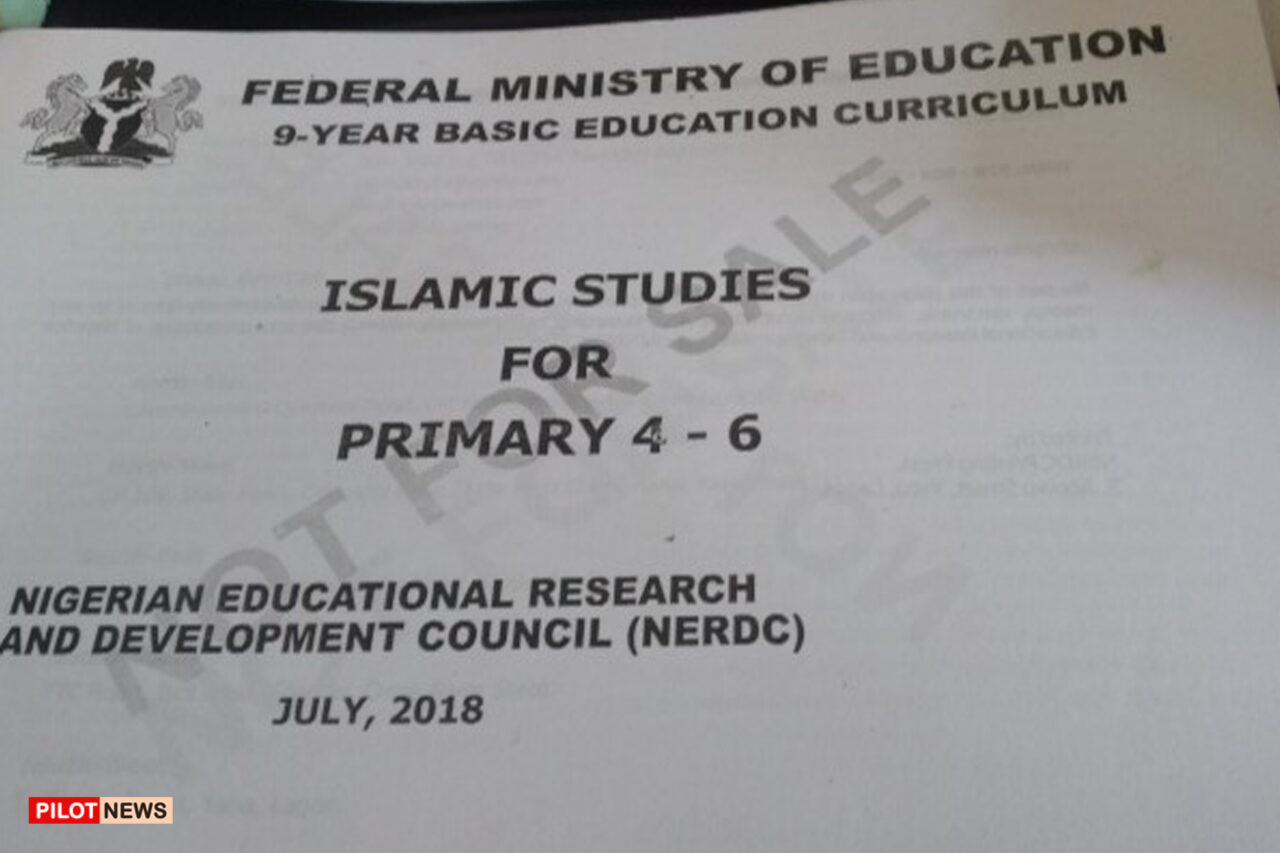
I think some two, three years back, some subjects were merged into one such as Basic Education which comprises Basic Science, Basic technology, ICT and Agriculture. And also Religious and national values which comprise security education, social studies, Civic Education, IRK, and CRK. These are independent subjects that were merged under one curriculum. But we never received any instructional materials for these subjects save for Social studies.
I also received the curriculum and teachers’ guide for history as a new subject but I had to ignore the subject because I couldn’t even find a textbook for that subject in the market.
“The curriculum for new subjects was issued with teachers’ guide but without any instructional material. I couldn’t assign anyone to teach the subjects because of that. We can’t teach these subjects with just teachers’ guides.
I even asked the LGEA in numerous meetings. I have asked over and over why textbooks for the new subjects weren’t supplied with the curriculums and guides,’’ he said in an irritating tone.
Expert speaks
An Education expert, Mr. Awopetu Olajide, who is specialized in special education and curriculum studies, blamed the situation on the floppiness of the government.
According to him, such problems are more likely to surface when policymakers leave classroom teachers out of the curriculum planning process. He also indicated that teaching cannot be effective without the use of auxiliary materials like textbooks.
“There is a curriculum and textbooks relationship which have to do with the textbook showcasing what is enshrined in the curriculum. So, there is no way a teacher can teach effectively without access to auxiliary materials like textbooks. And when you talk about effective teaching, learning is embedded. Effective teaching will bring about the effectiveness of learning. So ordinarily, when a textbook is been prepared, the author must follow what is written in the curriculum. Because the curriculum has topics that have been preselected for each session.
“Topics in the textbook must tally with the topics in the curriculum. Sadly, the supply of outdated textbooks is a result of laxity on the part of the government. This is a problem that occurs when the policymakers leave out classroom teachers when selecting topics for the curriculum. Teachers should not be left out but carried along in both curriculum planning and the distribution of teaching materials
Mr. Awopetu also posited that to ensure quality education, textbooks, and other teaching materials must be reviewed regularly so that updated information will be considered.
He stated that quality primary education has a major impact on the lifelong learning experience of school children, noting that if teaching materials are adequately prepared, effective teaching will be achieved.
“In most public schools, there are materials but these materials are mostly outdated. And teachers in these schools have a lukewarm attitude to their job for reasons best known to them. But if things are adequately prepared or provided by the government, definitely the teachers will teach effectively,” he added.
“If there is the effectiveness of teaching there will be quality learning. This will affect the lifelong learning experience of the students because the quality of teaching and learning they receive now will make in the future and if the students are adequately prepared now, the future of the country will be guaranteed. And if the case is otherwise, then definitely, the future of the country is at stake.”
UBEC hijacked procurement of instructional materials – SUBEB
When WAP contacted the state’s Universal Basic Education Board (SUBEB), the body claimed the challenge exist because procurement of instructional materials is directed and coordinated at the national level and not the state.
According to SUBEB’s executive secretary, Umar Hassan, the procurement and distribution of textbooks by UBEC denies states the liberty to approve textbooks based on their needs and peculiarities.
“The mandate to supply instructional materials is rested with UBEC and the commission in charge of this supply to all the states in the country. But this problem exists because UBEC hijacked the responsibility of supplying textbooks from SUBEB. If states are at liberty to decide what and how the textbooks will be designed and supplied based on their environment and reality, then we won’t be in this mess,” he said.
Mr. Hassan indicated that the board has trained teachers on how to source alternative instructional materials in situations where textbooks and other materials are unavailable.
He also noted that primary school teachers have been advised to source for information on the internet to aid teaching.
“SUBEB has trained teachers to find an alternative source of instructional materials. In some cases, it’s just some topics that are missing because new concepts have been inserted into the curriculum and we advise them to use the Internet.
“Headteachers have been instructed to make sure they have a phone with internet access, to support class teachers without such access. We have been training teachers on how to improvise instructional materials, government alone cannot provide all. We have trained them in activity-based teaching approaches which requires them to improvise instructional materials using low or no-cost materials. We are not asking them to buy materials with their money,” he added.
He stated that the board has notified UBEC of the challenge with instructional materials in the state, and can only hope that the problem is rectified.
- Breaking: Ohanaeze President General, George Obiozor, confirmed dead - December 28, 2022
- US to support NDLEA on improved intelligence gathering capacity - December 27, 2022
- Why diversified HIV/AIDS prevention tools matter for women - December 26, 2022

